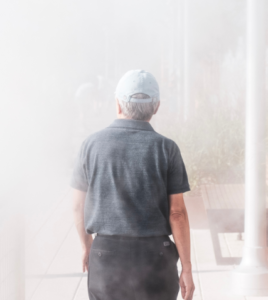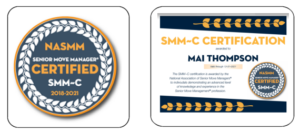How Can You Help a Senior With Memory Loss?
 We all forget or lose things once in a while, and some of us have better memories than others…but when a senior begins to forget things, it’s automatically assumed that they have dementia or Alzheimer’s disease – which isn’t necessarily true.
We all forget or lose things once in a while, and some of us have better memories than others…but when a senior begins to forget things, it’s automatically assumed that they have dementia or Alzheimer’s disease – which isn’t necessarily true.
Our brains are amazing; they have the capacity to store nearly unlimited quantities of information, but as we age, we can experience physiological changes that can cause our brains not to function as quickly as they did when we were younger. The information is still there, and we can access it, but it might take us a little bit longer. Keep in mind that at any age, the brain can continue to produce new brain cells. So think of the brain like any muscle in our body, you need to “use it or lose it”.
While it’s reassuring for a senior to know that if they are feeling a little foggy and forgetful, it doesn’t mean they have dementia or Alzheimer’s. Nevertheless, not being able to access their memory as quickly as as they used to can be very frustrating, but there are some things they can do to boost and stimulate their brain.
Brain boosting tips:
- Stay (or get) active. Physicians will tell you that the best thing you can do to preserve mental function is to exercise. It doesn’t have to be rigorous, in fact one of the best things you can do is take a 30 minute walk daily. This will not only help prevent age-related memory loss, but it will also help with high blood pressure, cholesterol, diabetes, obesity and help prevent stroke.
 Keep your brain active by doing such things as reading, working puzzles, playing cards or mentally challenging games. There are online games for the very purpose of challenging your brain, such as Lumosity
Keep your brain active by doing such things as reading, working puzzles, playing cards or mentally challenging games. There are online games for the very purpose of challenging your brain, such as Lumosity- Stay active in your hobbies and things you love to do
- Be socially active. Instead of reading or playing games by yourself, join a book club or a card group. Not only will you be happier but you will be stimulating your mental function
- Be sure to get a good night’s sleep. If you have restless nights, you may need to make some pre-bedtime changes such as:
- Having a regular time to go to bed
- Avoiding large meals before bedtime
- Definitely no caffeine before turning in
- Avoiding TV before going to bed can help you get a better night’s sleep
- Have your home well organized…
- Use a calendar or a schedule and write things down. In the event you have a forgetful moment, you will know right where to go to find the information you want
- Keep all your important papers and bills in one place
- Eat healthy by eating more fruits and vegetables and limiting calories and saturated fats
- If you smoke – stop
- If you’re worried about your memory loss, put your mind at ease, and pay a visit to your doctor for a physical

 We are Certified Senior Move Managers recognized by our National Association of Senior Move Managers, NASSM! We are committed to serving our seniors with a high standard of ethics, best business practices and continuing education to help make whatever transition they are going through a Smooth Transition.
We are Certified Senior Move Managers recognized by our National Association of Senior Move Managers, NASSM! We are committed to serving our seniors with a high standard of ethics, best business practices and continuing education to help make whatever transition they are going through a Smooth Transition.
Contact us to learn how we can help you and/or your family cope with a senior downsizing anywhere in the Phoenix East Valley area. We would love to serve you.

Comments are closed.